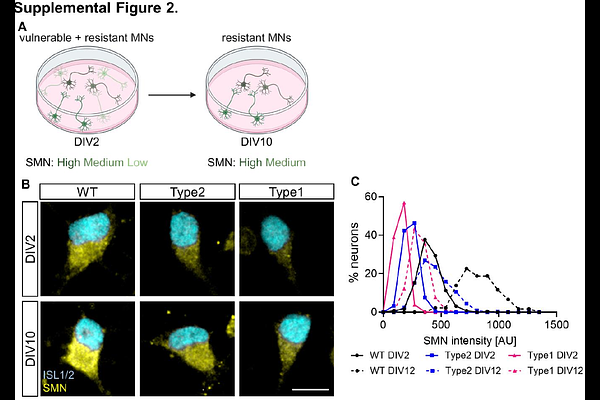Altered lysosomal biology impairs motor neuron survival via TFEB dysregulation in spinal muscular atrophy

Altered lysosomal biology impairs motor neuron survival via TFEB dysregulation in spinal muscular atrophy
Rosignol, I.; Dokuzluoglu, Z.; Caldarelli, A.; Oprisoreanu, A.-M.; Ushakova, S.; Siddiqui, T.; Grover, R.; Guerlich, H.; Falkenburger, B.; Diez, S.; Grass, T.; Becker, C. G.; Rodriguez-Muela, N.
AbstractSpinal muscular atrophy (SMA) is a devastating motor neuron disease, caused by recessive mutations or deletions of the SMN1 gene, representing the leading genetic cause of infant mortality. Available therapies, aimed at increasing SMN protein levels, can only partially halt motor neuron (MN) degeneration in a select number of patients, reinforcing the need for combinatorial treatments to improve clinical outcomes. We previously showed that mTORC1 overactivation and impaired autophagosome clearance in SMA MNs lead to the accumulation of protein aggregates, contributing to MN degeneration. However, the mechanistic link between SMN protein deficiency and autophagy-lysosomal dysfunction remained unknown. Here, using patient iPSC-derived MNs along with isogenic and healthy controls, we show that SMA MNs exhibit reduced lysosome numbers and impaired functionality. Furthermore, the master regulator of lysosomal biogenesis and autophagy, TFEB, is downregulated, and its nuclear translocation compromised upon SMN deficiency. We further propose the upregulation of the mTORC1 positive modulator TPT1 as contributor to TFEB dysregulation. Notably, TFEB overexpression ameliorates protein aggregate accumulation in SMA MNs and enhances MN survival both in vitro and in a zebrafish SMA model. Our findings identify lysosomal dysfunction as a key player in SMA pathology and highlight TFEB activation as a potential therapeutic strategy for SMA treatment.